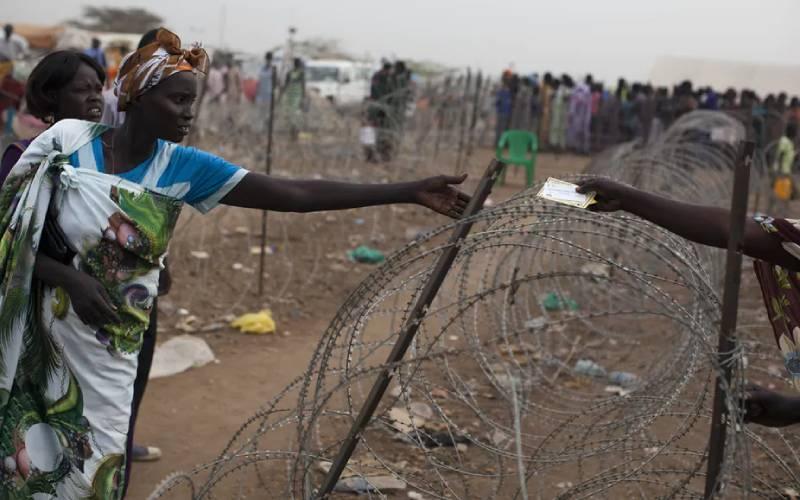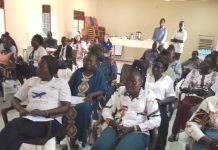Africa-Press – South-Sudan. The United Nations High Commission for Refugees (UNHCR) has revised its approach on healthcare provision services for refugees within the borders of South Sudan.
In an exclusive interview with The City Review, Becky Ondur, the UNHCR Community-Based Protection Associate, said that medical referrals for instance are no longer tenable for refugee settlement in South Sudan.
Ondur said that they have been forced to change tact due to funding shortfalls.
Instead, she said, all refugees in South Sudan will be treated at Juba Teaching Hospital.
“We had challenges with funding. It was realised that a lot of money was going to medical referrals. This was eating into other budget lines. The office reviewed the standard operating procedures, and in view of improved health systems in Juba, decided that the existing facilities shall render the services,” said Ondur.
Prior to the review of the standard operating procedures, UNHCR referred critical medical cases to Lacor Hospital in Uganda.
Ondur acknowledged that UNHCR understands the frustration of the refugees, but hastened to add that even resettlements on medical grounds are determined by the host countries.
“Our operations in South Sudan do not have a resettlement program. We send the critical cases to Nairobi (Kenya) which then takes over management of the resettlement of refugees to a third country,” she said.
Allelone Abebe, UNHCR Assistant Representative for Protection, said that Sweden has recently taken in eight refugees from South Sudan on medical grounds.
“Just this week, Sweden accepted to take eight people on medical grounds from South Sudan for resettlement but these are few cases,” Abebe explained.
He added that the number of people that really require resettlements are high against the few slots available.
“The challenge we have is that refugees will expect UNHCR to give them the best but it’s hard for them to understand that UNHCR has a limit to the extent to which the services can be delivered to them,”Ondur said.
The UNHCR noted that some refugees were contacting private doctors and seeking to be granted referrals. But Ondur stressed that any referral that’s not recommended by UNHCR partner ACROSS is rejected.
The new reality no doubt spells doom particularly for the Ethiopian refugees in South Sudan’s Gorom Refugee Camp near Juba.
Those with chronic illnesses now want South Sudan government and the UNHCR to expedite their medical referrals, claiming that they had waited for months for the referrals to be effected.
The City Review visited the Gorom refugee camp in a fact-finding mission and spoke with people who have chronic illnesses, who in their own words ‘are frightened of dying.’ Others have stayed for three to four years, expecting to be relocated to another country on treatment grounds.
Pilot Kontur, an Ethiopian who arrived in South Sudan in 2008, is living in Gorom camp with other refugees and his family, but his wife decided to leave him due to his poor health and returned to Ethiopia. Kontur claims he has been suffering from heart problems for three years, which has made his life extremely tough and prevented him from working.
He chose to seek medical treatment because he was in too much pain, and with the help of ACROSS, he was driven to Juba Teaching Hospital for a check-up, where he was diagnosed with heart disease and told that the hospital would not be able to treat him.
“I was taken for an interview with Dr Paweler at Juba Teaching Hospital. It is after I was checked in that I was informed that I needed to be sent abroad. It has been three years now of waiting,” said Kontur.
He claims the discomfort is sometimes severe yet he has breathing difficulty as well.
For More News And Analysis About South-Sudan Follow Africa-Press






